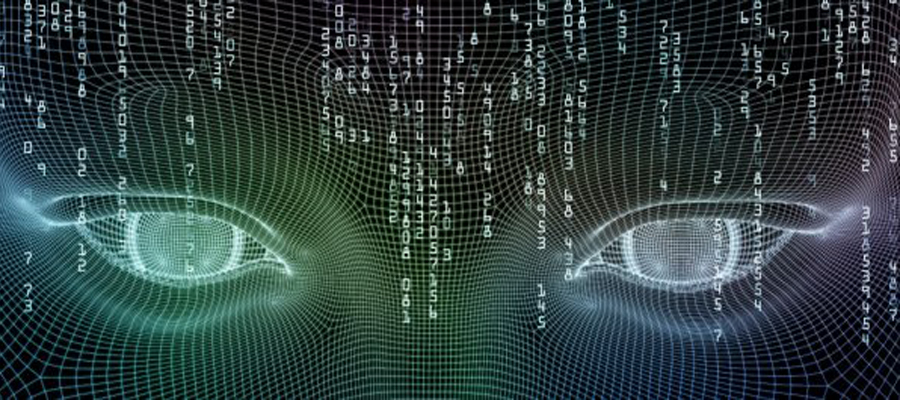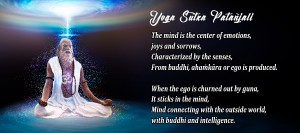- 1Semantic Problems
- 2Three Eternity Models
- 2..11. Survival of the Astral Body
- 2..22. The immaterial soul
- 2.13. Awakening of the Body
- 3Pragmatic Arguments for Belief in Immortality
- 4Dualism Argument
- 4.1Descartes's argument for Dualism
- 4.2Other Dualism Arguments
- 4.3Arguments against Dualism
- 4.4Soul Criteria
- 4.5Body Criteria
- 4.6Psychological Criteria
- 4.7Bundle Theory
- 4.1Problems with Awakening of the Body
- 4.2Parapsychology
- 4.3Reincarnation
- 4.4Near-Death Experience
- 4.5Extra Sensor Perception
- 5Prospect of Eternity Technology
- 5.11. Cryonics
- 5.22. Termination Engineering of Aging
- 5.33. Uploading Thoughts
- 5.3.1Reference
Dualism Argument
Plato’s argument simply accepts that the soul exists; he is only trying to prove that they are eternal. But, the main area of discussion in the philosophy of the mind is the existence of the soul.
One doctrine that holds that the soul does exist is called dualism; its name comes from the fact that he postulates that humans consist of two substances: body and soul. Arguments in favor of dualism are indirect arguments in favor of eternity, or at least support the possibility of survival from death. Because, if the soul exists, it is an immaterial substance. And, as much as it is immaterial, it is not subject to the decomposition of material objects; hence, it is eternal.
Most dualists agree that the soul is identical with the mind but different from the brain or function. Some dualists believe that the mind may be a kind of brain that arises: it depends on the brain, but it is not identical to the brain or its processes. This position is often labeled the Dualism Property, but here we are discussing the substance of dualism, namely the doctrine which states that the mind is a separate substance and not merely a separate property from the body, and therefore, can survive the death of the body.
Descartes’s argument for Dualism
René Descartes is usually regarded as the father of dualism because he presents some very sharp arguments in favor of the existence of the soul as a separate substance (Descartes, 1980). In his most famous argument, Descartes invites thought experiments: imagine we exist, but not our bodies. We wake up in the morning, but when we approach the mirror, we don’t see ourselves there. We try to reach the face with our hands, but it is thin air. We try to scream, but no sound comes out. Etc.
Now, Descartes believes that it is indeed possible to imagine such a scenario. However, if one can imagine the existence of a person without the existence of a body, then people are not formed by their body, and therefore, mind and body are two different substances. If the mind is identical with the body, it is impossible to imagine the existence of the mind without imagining at the same time the existence of the body.
This argument has been widely researched. Dualists certainly believe that is valid, but not without criticism. Descartes seems to assume that anything that can be imagined is possible. Indeed, many philosophers have long agreed that imagination is a good guide to what is possible (Hume, 2010).
But, this criterion is still being debated. Imagination seems to be a psychological process, and therefore not entirely a logical process. Therefore, maybe we can imagine a scenario that is actually not possible.
Descartes presents another argument. As Leibniz would later formalize in the Indiscernibles Identity Principle, two entities can be considered identical, if and only if, they deeply share the same attributes. Descartes exploited this principle and sought to discover the nature of the mind that is not possessed by the body (or vice versa), to state that they are not identical, and therefore, are separate substances.
“There is a big difference between mind and body because the body is basically something that can be shared, while the mind clearly cannot be shared. . . As far as I’m just thinking, I can’t distinguish any part of me. . . . Although the whole mind seems to be united with the whole body, however, it is the leg or arm or other body parts that are amputated, I know that nothing will be taken from the mind ”- Descartes, 1980: 97
Descartes believed that the mind and body could not be the same substance. Descartes put forward another similar argument: the body has extensions in space, and as such, can be linked to physical properties. But the mind has no extension, and because of that, it has no physical nature. It makes no sense to ask what color the desire to eat strawberries, or how heavy the Communist ideology is. If the body has an extension, and the mind has no extension, then the mind can be considered a separate substance.
Another Descartes argument draws some differences between mind and body. Descartes famously pondered the possibility that an evil demon might deceive him about the world. Maybe this world is not real. In as many possibilities as possible, Descartes believed that one might doubt the existence of one’s own body. However, Descartes argues that one cannot doubt the existence of one’s own mind. Because, if someone is in doubt, he thinks; and if someone thinks, then it is certain that his mind exists.
This argument is not without criticism. Indeed, the Leibniz Principle of Indiscernibles will make us think that, as much as the mind and body do not deeply share the same nature, they cannot be the same substance. However, in some contexts, it seems possible that A and B may be identical, even if it does not imply that everything predicted from A can be predicted from B.
For example, consider a masked man who robbed a bank. If the witness asks the masked man whether he robbed the bank or not, the witness will answer “yes!”. But if we ask the witness whether his father robbed the bank, he might answer “no”. However, that does not imply that the witness’s father was not a bank robber: maybe the masked person was the witness’s father, and the witness did not realize it. This is what is called ‘Masked Man Fallacy’.
This case forces us to reconsider Leibniz’s Law: A is identical to B, not if everything predicted from A is predicted from B, but instead when A and B deeply share the same traits. And what people believe about the matter is not property. Being the object of doubt is not, strictly speaking, property, but a deliberate relationship. And, in our case, being able to doubt the existence of the body, but not the existence of the mind does not imply that the mind and body are not the same substance.
Other Dualism Arguments
In more recent times, Descartes’ strategy has been used by other dualist philosophers to explain the difference between mind and body. Some philosophers argue that the mind is personal, while the body is not. Anyone can know the state of the body, but no one, including even yourself, can really know the state of his mind.
Some philosophers point to ‘intentionality’ as another difference between mind and body. The mind has intentionality, while the body does not. The mind is about something, whereas parts of the body are not. As much as thoughts have intentionality, they may also have values of truth. Not all thoughts are, of course, right or wrong, but at least thoughts that pretend to represent the world. On the other hand, the physical condition may not have a truth value.
Again, this argument exploits the difference between mind and body. But, as Descartes argues, it is not entirely clear that they avoided the Errors of Masked Men.
Arguments against Dualism
Opponents of dualism not only reject their argument; they also highlight conceptual and empirical problems with this doctrine.
Most opponents of dualism are materialists.
They believe that mental things are really identical to the brain, or at best, an epiphenomenon of the brain. Materialism limits the prospect of eternity: if the mind is not a substance separate from the brain, then at the time of brain death, the mind also becomes extinct, and hence, the person does not survive death. Materialism need not undermine all hopes of eternity, but it destroys the immortality of the soul.
The main difficulty with dualism is the so-called ‘problem of interaction’. If the mind is an immaterial substance, how can it interact with material substances?
The desire to move our hands, but how exactly does that happen? There seems to be an inconsistency with the immateriality of the mind: at one time, the mind is immaterial and not affected by material conditions, at other times the mind manages to come into contact with the body and cause its movement.
Daniel Dennett has mocked this inconsistency by capturing the comic strip character, Casper. This friendly Ghost animated film can penetrate walls. But, suddenly, he can also catch the ball. The same inconsistency arises with dualism: in its interactions with the body, sometimes the mind does not interact with the body (Dennett, 1992).
Details have offered several solutions to this problem. Occultists argue that God directly causes material events. Thus, the mind and body never interact. Likewise, paralegals argue that mental and physical events are coordinated by God so that they seem to cause each other, but in reality, they don’t. These alternatives were actually rejected by most contemporary philosophers.
However, some dualists might answer that the fact that we cannot fully explain how the body and soul interact, does not imply that interaction does not occur. We know many things happen in the universe, even though we don’t know how that happened.
Richard Swinburne, for example, argues as follows:
“Body events that cause brain events and that this causes pain, images, and beliefs, where their subjects have privileged access to the last and not the first, is one of the clearest phenomena of human experience. If we cannot explain how it happens, we must not try to pretend that it did not happen. We only have to admit that humans are not omniscient, and cannot understand everything “(Swinburne, 1997, xii).
On the other hand, Dualism postulates the existence of incorporeal thoughts, but it is not clear that this is a coherent concept. In the opinion of most dualists, the incorporeal mind does feel. But, it is not clear how the mind can feel without sense organs. Descartes seems to have no problem imagining the existence of the intangible, in his thought experiments.
Perhaps the most serious objection to dualism, and the substantial argument in favor of materialism, is the correlation of the mind with the brain. Recent developments in neuroscience increasingly confirm that mental conditions depend on the state of the brain. Neurologists have been able to identify certain areas of the brain that are associated with certain mental dispositions. And, insofar as there seems to be a strong correlation between mind and brain, it seems that the mind can be reduced to the brain, and therefore will not be separate substances.
In recent decades, neuroscience has collected data that confirms that brain damage has a major influence on people’s mental constitution. The Phineas Gage case is famous for this: Gage is a responsible and good train worker, but had an accident that caused damage to the frontal lobes of his brain. Since then, Gage has turned into an aggressive and irresponsible person, unrecognizable by his friends (Damasio, 2006).
Departing from the Gage case, scientists have concluded that the frontal regions of the brain determine personality. And, if mental contents can be severely damaged by brain injury, it doesn’t seem right to postulate that thoughts are immaterial substances. If, like the proposition of dualism, Gage has an immaterial immortal soul, why does his soul not remain intact after his brain injury?
Similar difficulties arise when we consider degenerative neurological diseases, such as Alzheimer’s disease. As is widely known, this disease eradicates the mental contents of the patient, until the patient loses his memory almost completely. If most of the memories eventually disappear, what remains of the soul? When a patient suffering from Alzheimer’s dies, what survives if most of his memory has been lost? Of course, correlation is not an identity, and the fact that the brain empirically correlates with thought does not imply that the mind is the brain. However, many contemporary thought philosophers adhere to what is called ‘identity theory’: mental states are exactly the same thing as firing certain neurons.
Dualists can respond by claiming that a brain is merely a tool of the soul. If the brain does not work well, the soul will not work properly, but brain damage does not imply a deterioration of the soul. Consider, for example, a violinist. If the violin does not play accurately, the violinist will not perform well. But, that doesn’t imply that violinists have lost their talent. In the same way, a person may have a brain that is lacking, however, keeping his soul intact.
Dualists might also suggest that the mind is not identical with the soul. In fact, while many philosophers tend to consider the soul and mind to be identical, various religions assume that a person actually consists of three substances: body, mind, and soul. In such a view, even if the mind degenerates, the soul remains. However, it would be far from clear what the soul really is, if not identical to the mind.
Every philosophical discussion about eternity touches on the fundamental problem of personal identity. If we hope to be saved from death, we want to make sure that people who continue to live after death are the same people who existed before death. And, for religions that postulate the Last Judgment, this is an important issue: if God wants to apply justice, the person who is rewarded or punished in the hereafter must be the same person whose actions determine the outcome.
The question of personal identity refers to the criteria in which a person remains the same ie, numerical identity all the time. Traditionally, philosophers have discussed three main criteria: soul, body, and psychological continuity.
Soul Criteria
Soul criteria for people’s personal identities remain the same all the time, if and only if they maintain their souls (Swinburne, 2004). Philosophers who adhere to this criterion usually do not consider the soul identical with the mind. Very few philosophers like the criterion of the soul, because it faces great difficulty: if the soul is an incomprehensible substance that is immaterial (to be exact, as much as it is not identical with the mind), how can we be sure that one person remains the same? We don’t know whether, in the middle of the night, our neighbor’s soul has been transferred to another body. Even though the contents of the body and mental of our neighbors remain the same, we will never know whether the soul is the same. Under this criterion, there seems to be no way to ensure that someone is always the same person.
However, there are arguments that sufficiently support the criteria of the soul. To pursue such an argument, Richard Swinburne proposes the following thought experiment: if the A’s brain succeeds in splitting into two, and as a result, we get two people; one with the left hemisphere of the A’s brain, the other with the right hemisphere. Now, which one is A? Both have the brain part of A, and both save some of the mental contents of A. So, one of them must be A, but which one?
Unlike the body and mind, the soul cannot be divided or imitated. So, even though we don’t know which one will be A, we know that only one of the two people is A. And that will be the person who takes care of A’s soul, even if we don’t have a way to identify it. In such a way, even though we know about the body and mind of the A, we cannot distinguish who that A is; therefore, the identity of the A is not his mind or body, but his soul.
Body Criteria
Common sense informs that people are their bodies, but, although many philosophers disprove this, ordinary people generally hold such views. So, under these criteria, a person remains the same, if, and only if, they preserve the same body. Of course, the body changes, and finally, all of its cells are replaced. This evokes an ancient philosophical conundrum known as The Theseus Ship: the boards of Theseus are gradually replaced until none of the originals remain. Is it still the same boat? There has been much discussion about this, but most philosophers agree that, in the case of the human body, the total replacement of atoms and slight changes in shape do not change the numerical identity of the human body.
However, the body’s criteria soon experienced difficulties. Imagine two patients, A and B, who underwent surgery simultaneously. Inadvertently, their brain is exchanged by being placed in the wrong body. Thus, brain A is placed in body B. Let’s call this person C. Naturally, as much as brain A, it will have memory A, mental contents, and so on. Now, who is C? Is the B with brain A; or is she A with body B? Most people will think about the latter. However, the brain is the center of consciousness.
Thus, it would appear that the body’s criteria must give way to the brain’s criteria: a person remains the same, if and only if, he preserves the same brain. But, once again, we have difficulties. What if the brain experiences division and each half is placed in a new body? As a result, we will have two people who pretend to be genuine, but, because of the principle of transitivity, we know that they cannot be genuine. And, it seems that one of them must be a genuine person and not the other. This difficulty invites consideration of other criteria for personal identity.
Psychological Criteria
John Locke famously asked what we would think if one day a prince wakes up in the body of a cobbler, and a cobbler in the body of a prince (Locke, 2009). Although fellow cobblers will recognize him as a cobbler, he will have the memories of a prince. Now, if before that event, the prince committed a crime, who should be punished? Should people in the palace, who remember being cobblers; or should the person in the workshop, who remembers being a prince, include his memory of evil?
It seemed that the man in the garage had to be punished for the prince’s crime, because, even if it was not the prince’s original body, that person was the prince, just as he kept his memory. Locke, therefore, believes that a person remains the same, if and only if, he maintains psychological continuity.
Although it seems to be an improvement with respect to the two previous criteria, psychological criteria also face several problems. Suppose someone claimed today as the Reincarnation of the A, and kept it very clearly and accurately the memories of seventeenth-century conspirators. With psychological criteria, such a person will indeed be the A. But, what if, simultaneously, other people also claim to be the A, even with the same level of accuracy? Obviously, the two people are not A. Again, it seems arbitrary to conclude that one person is A, but the other person is not. It seems more plausible that there is no person named A, and therefore psychological continuity is not a good criterion for personal identity.
Bundle Theory
Based on the difficulties with the above criteria, some philosophers have argued that, in a certain sense, people do not exist. Or, rather, the self does not change. In the words of David Hume, a person “is nothing but a collection or collection of different perceptions, which succeed with each other at an unimaginable speed, and are in perpetual flux and motion” (Hume, 2010: 178). This is called the ‘bundle theory about self’.
As a corollary, Derek Parfit argues that, when considering survival, personal identity is not truly important (Parfit, 1984). What’s important is psychological continuity. Parfit asks to consider this example.
Suppose a person enters a booth where, when he presses a button, the scanner records the state of all the cells in his brain and body, destroying both while doing it. This information is then transmitted at the speed of light to several other planets, where the replicator produces a perfect organic copy for it. Because the replica brain is exactly like hers, it seems like she will remember living her life until when she presses the button, her character will be the same as hers, it will always be another psychological way to be with her. (Parfit, 1997: 311)
Now, under psychological criteria, such a replica is actually him. But what if the machine did not destroy the original body, or make more than one replica? In such a case, there will be two people claiming to be him. As we have seen, this is a major problem for psychological criteria. But, Parfit argues that, even if the person being replicated is not the same person who entered the cubicle, it is psychologically continuous. And, that is indeed relevant.
Parfit’s position has important implications for the discussion of eternity. According to this view, someone in the afterlife is not the same person who has lived before. But, that should not concern us. We must care about the prospect that, in the hereafter, there will be at least one person who is psychologically constantly with us.





